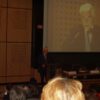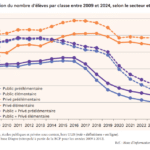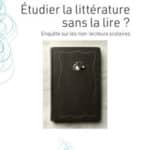Big Brother and Reality TV
On e-teach, our colleague Catherine Serreau announces that she wanted to go on with the « Big Brother » theme featured A la Une in Infonews 294 and create a « Big Brother and Reality TV » unit, using those documents:
– an article from BBC Learning English :
http://www.bbc.co.uk/worldservice/learningenglish/newsenglish/witn/2007/01/070122_india_big_brother.shtml
with the audio file
http://www.bbc.co.uk/worldservice/learningenglish/meta/dps/2007/01/nb/070122_india_big_brother_story_au_nb.ram
– an article from France 24 :
http://www.france24.com/france24Public/en/archives/news/2007/January/europe/20070117-big-brother.html
with the video (captured for us by Gilles Siche)
http://g.siche.free.fr/Documents/EN NW PKG RACIST BULLY 18h_400.wmv
– the 1984 Apple ad promising that, with Machintosh, 1984 won’t be like « 1984 »:
http://www.uriahcarpenter.info/1984.html
and the video
http://www.uriahcarpenter.info/movies/Apple.1984.mov
– this article from OneStopEnglish
http://www.businessenglishonline.net/incompany/PDFs/worksheets/intermediate/IC027WSI_Brother.pdf
Reality TV and literary references
For my part, I don’t like going too much into those rows between would-be celebrities. This type of reality show seems to be no longer shown on French TV (or at least the media no longer comment on them) so maybe the students will no longer find it as appealing as in the past. Therefore I prefer the 1984 ad by apple (see above) or this article about the row, presented from an economical point of view:
http://observer.guardian.co.uk/business/story/0,,2000117,00.html
But last time I studied this topic, I tried to raise the debate on the cultural level with this superb article that I recommended in Le café Pédagogique n°5 in 2001!
This article entitled « The Real World is Hell » is full of literary references and really difficult to understand but it excellently sets the basis of a debate about individual freedom.
http://www.salon.com/media/media960717.html
In 2001, I studied it in two classes of scientific upper intermediate students with a good cultural background. In each class someone managed to find out that ‘No exit’ was the English for ‘Huis clos’. The other references are: the Styx, 1984, the portrait of Dorian Gray and Faust. My students didn »t know those references but when I explained, they immediately found why the author of the article had chosen to use them.
After elucidating the literary references and their links to the title and the global content of the article, I then asked them to focus on the part of MTV (the omnipotent narrator, the unsee torturer) then on the candidates (profils, ages, r�actions, ambition): to finally discover that the author of the text was in the show when he wrote the article (last line of the text).










